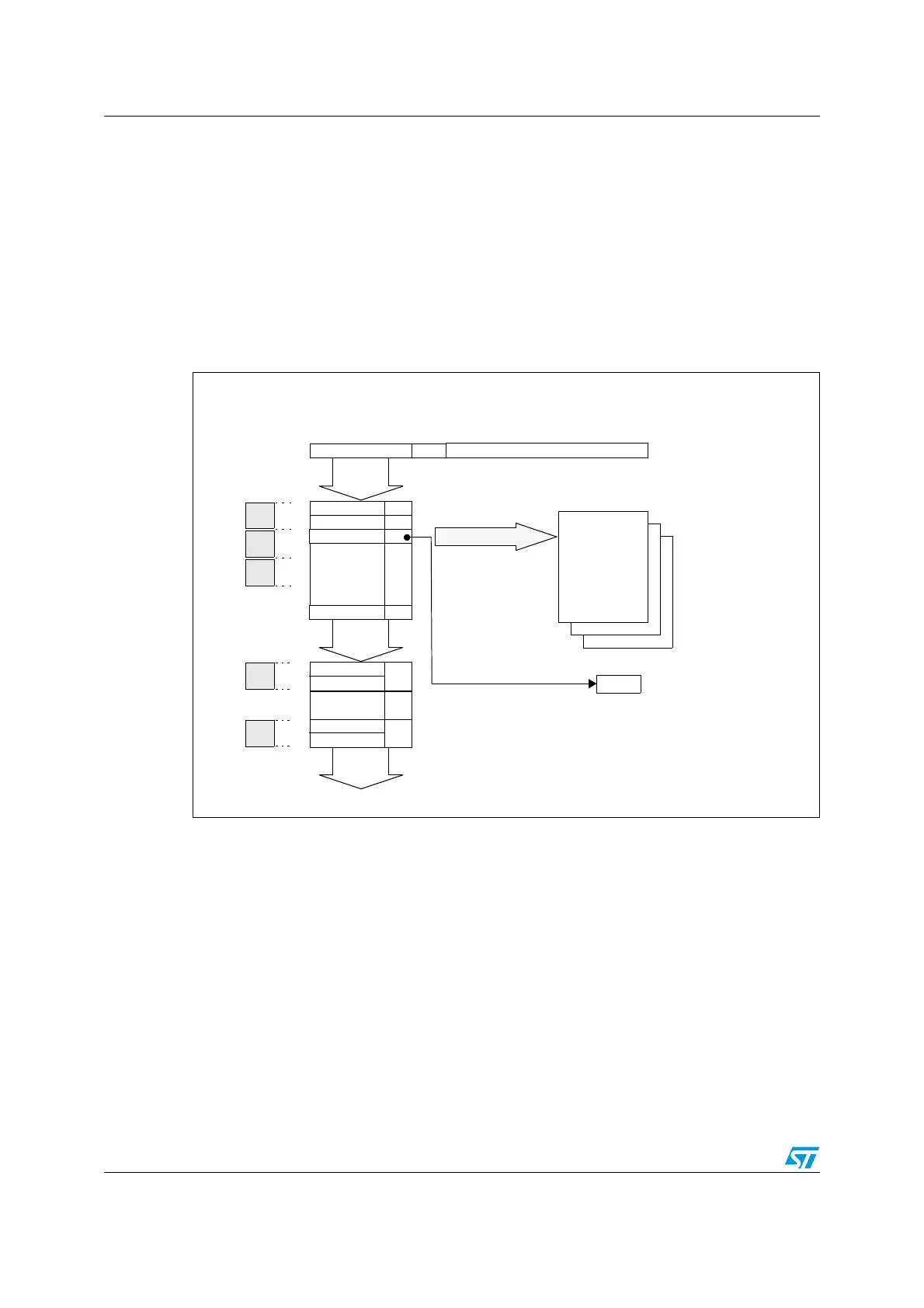Controller area network (bxCAN) UM0306
294/519
Filter priority rules
Depending on the filter combination it may occur that an identifier passes successfully
through several filters. In this case the filter match value stored in the receive mailbox is
chosen according to the following priority rules:
● A 32-bit filter takes priority over a 16-bit filter.
● For filters of equal scale, priority is given to the Identifier List mode over the Identifier
Mask mode
● For filters of equal scale and mode, priority is given by the filter number (the lower the
number, the higher the priority).
Figure 128. Filtering mechanism - example
The example above shows the filtering principle of the bxCAN. On reception of a message,
the identifier is compared first with the filters configured in identifier list mode. If there is a
match, the message is stored in the associated FIFO and the index of the matching filter is
stored in the Filter Match Index. As shown in the example, the identifier matches with
Identifier #2 thus the message content and FMI 2 is stored in the FIFO.
If there is no match, the incoming identifier is then compared with the filters configured in
mask mode.
If the identifier does not match any of the identifiers configured in the filters, the message is
discarded by hardware without disturbing the software.
Identifier List
Message Discarded
Identifier & Mask
Identifier
0
Identifier
1
Identifier
4
Identifier
5
Identifier
2
Mask
Identifier
3
Mask
Identifier
Message Received
Ctrl
Data
Identifier #4 Match
Message
Stored
Receive FIFO
No Match
Found
Filter number stored in the
Filter Match Index field
within the CAN_RDTxR
register
FMI
Filter bank
0
2
3
1
4
Example of 3 filter banks in 32-bit Unidentified List mode and
Num
the remaining in 32-bit Identifier Mask mode

